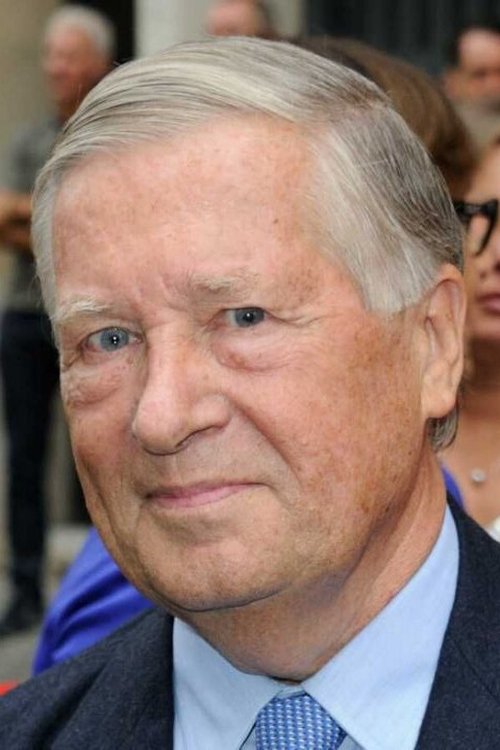
|
Le Grand Fanfaron (1976)
Character: N/A
Lieutenant Gilles Castelet would have liked to marry like anybody else. But he has always been under the sexual spell of Colonel Popoti's wife. Once returned to civilian life he tries desperately to escape her, all the more as she is now widowed and she shamelessly chases him away. One day, Gilles meets Charlie, a former army buddy. His friend, sorry about what happens to him, undertakes to rid him of the possession he is under.
|
|

|
Mitterrand, l'héritage impossible (2016)
Character: self
“I am the last of the great Presidents. After me, there will be no more ..." said François Mitterrand at the end of his life. What legacy left the first socialist president of the Fifth Republic? Documentary filmmaker Bertrand Delais and a host of French intellectuals such as Laurent Fabius, Hubert Védrine, Julien Dray, Dominique Bertinotti, Jean-Pierre Chevènement and Bruno Roger-Petit take a look into what that means.
|
|

|
1974, l'alternance Giscard (2019)
Character: Self
In May 1974, Valéry Giscard d'Estaing became the third President of the Fifth Republic. An alternation of power that did not speak its name opened the doors of power to a reforming president. Abortion, divorce by mutual consent, lowering the age of majority to 18 - in less than two years, the youngest President of the Republic - at the time - carried out reforms with a vengeance, without a united majority in Parliament, before failing in the economic sphere and losing the battle against unemployment. At the age of 90, the former President of the Republic has agreed to look back on these years and gives us a valuable account of his time in power.
|
|
|
|

|
Pas vu, pas pris (1998)
Character: Self
"Pas vu, pas pris" starts with a subject filmed 2 years ago ; ordered then forbidden to broadcasting by Canal + : it was "Pas vu à la télé". Bernard Benyamin, Henri de Virieux, Patrick de Carolis, Anne Sinclair, Charles Villeneuve (amongst others) appear before the candid camera of Pierre Carles, for once subjected to an investigation that concerns their profession. After proclaiming that there is no taboo subject on television, they discover a pirate document showing Étienne Moujeotte and François Léotard in a business discussion about the destinies of TF1. Question asked : would they have agreed to broadcast this document and if not, why not ? The investigation itself is objectively searching : anything can be said on TV except one thing, the more or less close collusion of journalists and the political powers. Pierre Carles gives us a sharp reflection on the scope of this "fourth power" that the media have become, and on the compromises of those who are its masters.
|
|

|
La TV des 70's : Quand Giscard était président (2022)
Character: Self (archive footage)
In May 1974, Valéry Giscard d'Estaing became President of the Republic and wanted to bring about a new era of modernity. One of his first decisions was to break up the ORTF with the creation of three new television channels: TF1, Antenne 2 and FR3. Three new public channels but autonomous and competing. It is a race for the audience which is engaged then, and from now on the channels will make the war! This competition will give birth to a real golden age for television programs, with variety shows in the forefront. The stars of the song are going to invade the living rooms of the French for their biggest pleasure. This unedited documentary tells the story of the metamorphosis of this television of the early 1970s, between freedom of tone, scandals, political intrigues and programs that have become mythical.
|
|

|
Mitterrand et la télé (2021)
Character: Self (archive footage)
May 10th, 1981. François Mitterrand is elected President of the Republic. The “soviet tanks” supposedly coming upon the Champs-Élysées dressed in red, feared by some, did not march. Serge Moati takes a personal look at this episode, focusing on the relationship the president had with television, that he witnessed and played a role in.
|
|

|
Les nouveaux chiens de garde (2012)
Character: Self
In 1932, the writer Paul Nizan published "The New Watchdogs" to denounce the philosophers and writers of his time who, sheltering behind intellectual neutrality, imposed themselves as true watchdogs of the established order. Today the watchdogs are journalists, editors, and media experts who've openly become market evangelists and guardians of the social order. In a sardonic manner, "The New Watchdogs" denounces this press that, claiming to be independent, objective and pluralist, makes out it is a democratic force of opposition. With forcefulness and precision, the film puts its finger on the increasing danger of information produced by the major industrial groups of the Paris Stock Exchange and perverted into merchandise.
|
|








